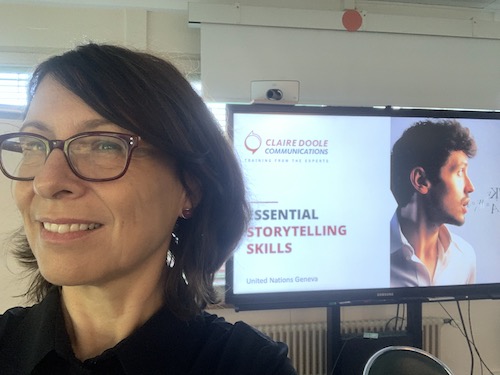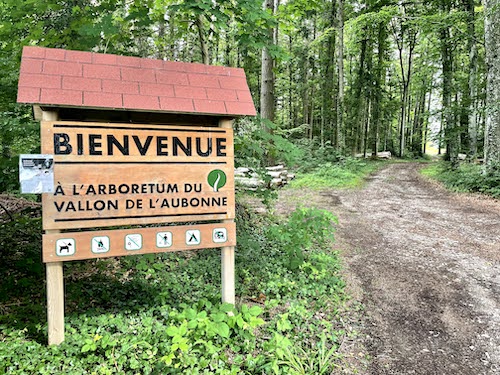Guest Blogs
Knowitall.ch often invites local experts in their field to contribute to their own blogs on our site. This means not only you will benefit from the useful recommendations that we make on our News pages, but you can also profit from some of the great advice and tips that these experts have to make on their favorite subjects. Whilst each of these bloggers has been recommended to us at some point during the evolution of Know-it-all passport and knowitall.ch, obviously we are not able to test out all the suggestions they make on their blogs, nor do we necessarily agree with all their opinions. So if you do find one of their tips useful (or not!), do let us know!
To make these blogs more accessible to you, we have now decided to group them altogether in one section, entitled Guest Blogs, accessible from our main menu bar. We will also post the most recent blogs on the home page of our site in the right hand column.
We are still building up this area of the site, and are looking for bloggers in a number of sections, including Your Home, Travel, and Leisure, so if you feel you have a useful contribution to make in either of these areas, and have the time to submit blog entries approximately every month, then please get in touch!

🍫🍐 Follow Lisa: Gooey Chocolate Cookies with Dried Pear - Belle Hélène
This recipe makes 18 cookies
- 40g flour (8 teaspoons) (or 50g gluten free flour)
- 50g unsweetened cocoa powder (10 teaspoons)
- 120g white sugar (1 cup)
- 1/8 teaspoon baking powder
- pinch of salt
- 120g dried pear, cut up (1 cup)
- 90g chocolate chips (3/4 cup)
- 1 egg
- 60g of melted butter (4 Tablespoons)


By Claire Doole, Doole Communications
Everyone loves a good story. Our parents read us stories, and we tell them naturally to friends and family. So why is it that in a professional context, we are so reluctant to tell stories?
I ask this question at the start of my storytelling workshops. Participants come up with a number of answers ranging from it is culturally inappropriate, too personal or a lack of ability.
Often people tell me storytelling is too Anglo-Saxon and not appropriate in Mediterranean or other cultures. In fact, I would argue that Africans are fantastic storytellers due to their oral traditions. But I think this reluctance is because people associate storytelling with the high drama of Hollywood with its rollercoaster of emotions.
In fact, storytelling is much simpler; it is about adding colour to the facts.
Ethos, pathos, logos
The Greeks got it right 2,500 years ago. Aristotle said if you want to persuade someone of something, you need to appeal to ethos (credibility), logos (logic) and pathos (stirring emotion in the audience). In the workplace we often have ethos and logos, but shy away from pathos.

By Elizabeth Ballin, Mental Health and Life Coach/Mindfulness Practitioner
A lifetime ago, back when I was working in a company, two of my line managers started bullying me.
I struggled to make sense of what was happening to me, but tried as I might, I could not “reason” my way to a solution. It knocked me off my feet both emotionally and physically. A day before my summer break one year, I was given a glowing job review saying that I was tenacious, energetic, gave my heart and soul to my job and was creative in finding solutions and a devoted team member.
When I came back from my summer holiday, these two line-managers stopped talking to me. I got no response when I said "hello". The work that I valued was taken from me and given to others, and I was no longer included in any meetings.
I found myself losing motivation to perform
I was being isolated in my own work environment. I could overhear whispering behind their closed doors - in an office environment where we had an open door policy. I could not be certain if they were talking about me or not, and the doubt started to drive me crazy.
Unexplained changes in behavior are destabilizing and drives us to seek out the causes of the change. I thought if I could just understand why my managers’ behavior towards me had changed, I could resolve the situation. But I received no response to my repeated requests for a sit-down meeting to discuss what was wrong. No feedback, no explanation.
I went home in total despair to my partner and children who were supportive but couldn’t answer my “why” questions.
I couldn’t sleep; I cried and shut down
I spoke to human resources who sung my praises but who could not give me any guidance. My colleagues were as perplexed as I was. I went to our Executive Director, and he didn’t know either. Everyone either pretended they didn’t know or were outraged by my story but had no solutions. In absence of an external reason for what was happening, I turned on myself.
I lost my sense of identity
The poison of self-doubt set in and debilitated me. Anxiety and self-loathing crept into my core being.
To this day, no one has told me why. Reason and rationale were not going to help me overcome the problem. Formal complaints mechanisms were not providing solutions. To survive, I had to develop the tools and the inner strength needed to get me through.

Text and photos by Aurea Fagel
Autumnal blues kicking in after an active eventful summer under the sun? Hmm… what to do next? In Switzerland, that last question is met with a chockful of goody ideas! Of course, TONS of stuff always to do around this beautiful country. And the onset of the cold season does not even hamper the spirit! So allow me to give you my 2-cents on what to explore on a weekend – the day-tripper, overnighter and the long weekender - good itineraries to get your autumn vibes going.
Day Tripper - Easy Hike to Arboretum, Vallon de l’Aubonne
My Scrabble group took a day hike to the famous national park Arboretum in Aubonne last summer and we covered about 3-4 interesting trails for around 3 hours with a picnic lunch. But I bet in autumn, there would be a magical display of colors on the trees and reflections on the lake promising a wonderful walk or hike!
We followed the trail “Parcours Sylviculture” (Forest Discovery trail) on the way up to the main picnic area. Then on the way back, we traversed through the trails “Sentier de la Vaux”, “Séquoias” and “Sentier du Bois-Guyot”, before coming back to the park’s central space.
Fun Fact: Wild roses bear fruit and they are called rose hip or rose haw (in French it is called cynorrhodon). They are edible and can be made into jams and infusions!


By Claire Doole, Doole Communications
The pandemic is not over, but at least in Europe there is a return to something resembling normality (for the moment at least). At the virtual and hybrid conferences that I moderate, many speakers are talking about the small window of opportunity that exists to reset the world for the better of humanity.
But in my small world of moderating at events nothing much has changed – unfortunately!
I had hoped that some of the best practices from the virtual world – shorter event times, shorter presentations/speeches, greater variety of format and creativity – would become the new normal.
We know that we have to work harder to break through the screen of indifference when an event or meeting is virtual. The hybrid format – focusing on a virtual and in-person audience is challenging technically and editorially. I know some clients who have decided to abandon hybrid in favour of virtual or in-person.
However, editorially I am still seeing the same errors at some, not all, the events that I moderate. Here are some of them:







